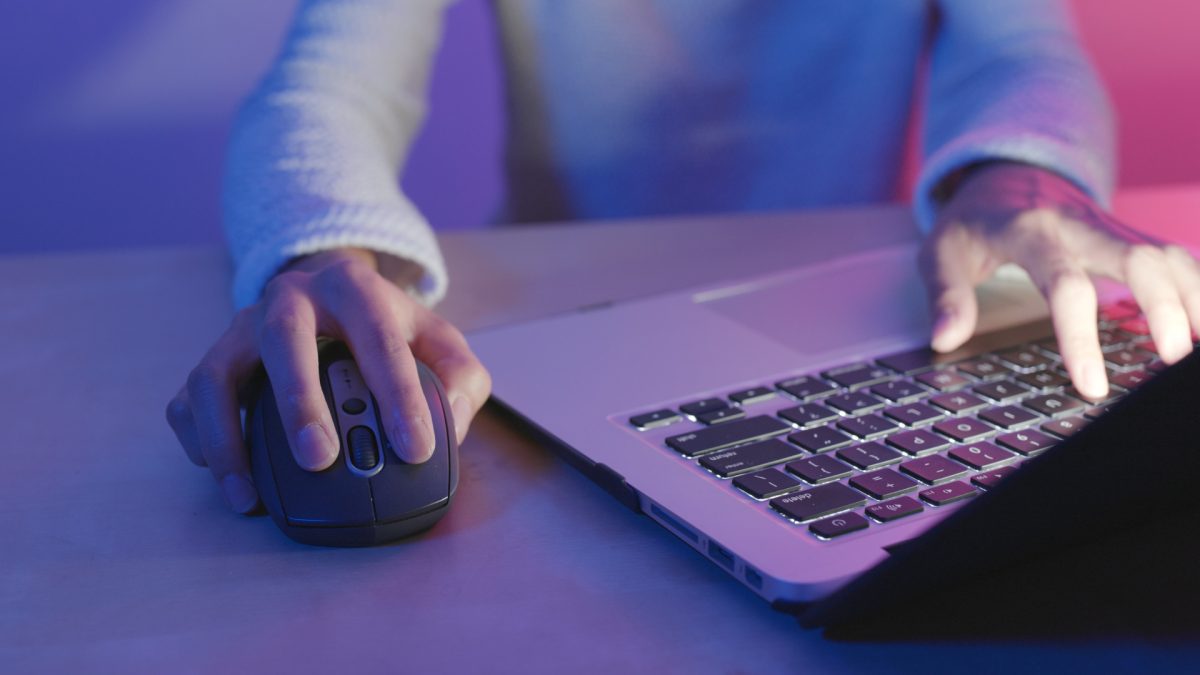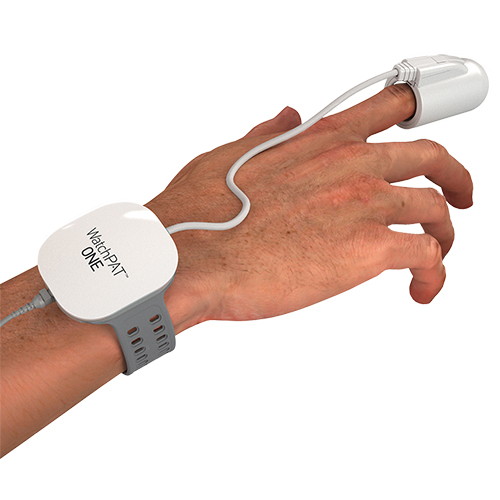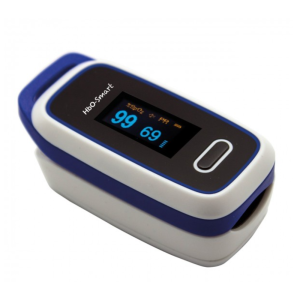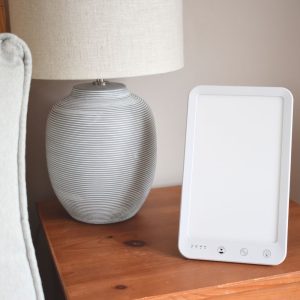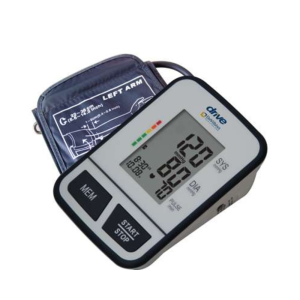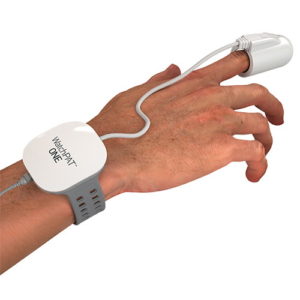Fact Checked
Intus Healthcare’s writers, customer service team, and sleep experts review and ensure this information is accurate.
Last updated on February 29th, 2024 at 11:51 am
Table of Contents
Does turning off blue light help you sleep?
Sleep plays an essential role in maintaining your overall health and well-being. While you sleep, your body undergoes several processes that help you recover from the day and prepare for the one ahead. Let’s take a look at the impact of blue light and how it can prevent you from sleeping enough.
People can struggle to get the quality rest they need due to stress, anxiety, poor diet and sleep disorders, including Insomnia and Obstructive Sleep Apnoea (OSA).
If you struggle to get a good night’s sleep, doctors recommend changing bad habits such as eating heavy meals close to bedtime and eliminating any electronic screen time before sleeping. Lack of sleep from artificial blue light has been linked to various health conditions, including heart disease, type 2 diabetes, obesity, lower immunity levels and depression(1).
What is blue light?
Blue light is part of the visible light spectrum that comes in short wavelengths, typically from electronic screens. The blue light produces more energy and suppresses the body’s release of melatonin, making you less tired.. Globally, people average around 7 hours of screen time daily, which has increased by nearly 50 minutes per day since 2013(2).
How long before bed should I avoid blue light?
To promote better sleep, you should avoid using electronic devices two to three hours before your intended sleep time. This practice can assist your body in naturally winding down.
The light from electronic devices may appear white, but they give off blue light wavelengths. To decrease your time spent on these devices, consider setting an alarm to limit your usage.
Blue light sources:
- Televisions
- Tablets
- E-readers
- Gaming systems
- Smartphones
- Fluorescent light bulbs and LEDs
- Laptops and computers
Ways to reduce blue light
The blue light specifically interrupts your circadian rhythm, which is your natural sleep-wake cycle. Circadian rhythms are 24-hour cycles that control your sleep-wake cycle. Circadian rhythms use light signals to adjust the internal body clock, most notably the light from daytime and nighttime. These rhythms let your body know when to be awake and when to sleep. We do not have full control of our circadian rhythm, but there are things you can do to help regulate sleep.
Dim your screen – Dimming the brightness or turning your device onto dark mode in your settings are good ways to reduce the amount of blue light reaching your eyes.
Blue light-blocking glasses – Another way to reduce blue light is by wearing blue light-blocking glasses, which you can easily find online. Wearing tinted glasses could be extremely useful for people who have to work at night or work irregular hours. Amber-tinted glasses are one of the most effective ways to counteract the blue light emitted by electronic devices. Blocking the blue light will allow your natural melatonin to regulate your sleep.
Blue light filtering apps – For your smartphone, tablet or computer, there is a range of apps you can install that help to filter blue light from your screen. The f.lux application works by automatically adjusting the colour and brightness of your computer screen based on your time-zone; when it is dark, the app reduces blue light.
Change your light bulbs – Swap your LED lights for blubs that emit less blue light. Alternatively, you could try using dim red lights, as red is the colour with the least effect on your circadian rhythm. Or just turn off lights to let your body wind down into sleep mode.
Take frequent breaks – If you work with a laptop or computer, take frequent breaks away from your electronic device.
Clean your screens – A clean, smudge-free screen can help reduce the blue light glare.
Daylight exposure – Daily exposure to sunlight and exercise will help regulate your body clock. Exposure to daylight keeps you alert throughout the day and tired at night.
Melatonin supplements – Try taking a melatonin supplement to help regulate your sleep-wake cycle. Taking a melatonin supplement can help reset your body clock so you fall asleep more easily.
How much does screen time affect sleep?
The growth of electronic screens in our everyday lives has increased our exposure to blue light.
Modern-day energy-efficient lighting also emits more light on this colour wavelength. We are naturally exposed to blue-coloured light during the day, mainly from sunlight when we are out and about. However, this is good as it helps increase our levels of alertness while also improving our mood and performance.
Increasing exposure to blue light at night can cause people to experience difficulty falling asleep, as it suppresses the hormone melatonin.
How does sunlight affect melatonin levels?
Sunlight regulates your circadian rhythm by letting your body know when to increase and decrease your melatonin levels. This is where exposure to artificial light sources at night can be an issue, as it can suppress melatonin production and lead to sleeping problems.

Does blue light affect your circadian rhythm?
With the invention of artificial lighting and electronic screens, your body clock has a variety of sensory inputs to process. Your eyes are not good at blocking out artificial blue light from screens, affecting your body’s ability to fall asleep. This is because blue light prevents melatonin, the hormone that makes you sleepy. Therefore making it more difficult to fall asleep.
What happens when your circadian rhythm is off?
When your circadian rhythm is off, your body does not function properly. When your body’s natural circadian rhythm isn’t functioning properly, you might find it challenging to initiate sleep and could experience frequent awakenings during the night.
Make changes to improve your health
Reducing your screen time before you sleep can help you to fall asleep faster and regulate your sleep-wake cycle.
Consistently disrupted sleep can have detrimental effects on your health. For those with disorders such as Obstructive Sleep Apnoea, the nature of any treatment plan can be affected by difficulties falling asleep.
Therefore, addressing the level of blue light you are exposed to at night is essential in setting your body clock and ensuring a good sleep routine.
If you think you have OSA and have not had it confirmed, take a Sleep Apnoea Test, also known as an In-Home Sleep Test.
If you need any help regarding your OSA, please contact us.
FAQs
Can anything help reduce the effects of blue light exposure during the day?
You can do a few things, including installing blue light-blocking software and wearing blue light-filtering computer glasses. Spending time outdoors during daylight hours can help regulate your circadian rhythm by reinforcing your body’s natural sleep-wake cycle. Aim for at least 30 minutes of sunlight exposure each day, especially in the morning. If you work with electronic devices, take frequent breaks to rest your eyes and reduce prolonged exposure to blue light. Follow the 20-20-20 rule: every 20 minutes, look at something 20 feet away for at least 20 seconds to give your eyes a break. Many electronic devices offer settings to reduce blue light emissions, such as “night mode” or “blue light filter.” Enable these features, especially in the evening, to decrease the amount of blue light reaching your eyes.
What are the long-term consequences of chronic exposure to blue light at night, especially considering the prevalence of electronic devices in modern society?
Consistent exposure to blue light before sleep could damage retinal cells and impact vision. The constant eyestrain can irritate your eyes, making it difficult to concentrate and increasing the risk of cataracts. Exposure to blue light before bedtime suppresses the production of melatonin, the hormone responsible for regulating sleep-wake cycles. Reduced melatonin levels can result in poor sleep quality, fragmented sleep, and decreased overall sleep duration, leading to daytime sleepiness and fatigue. Prolonged exposure to blue light emitted by electronic screens may contribute to dry eyes and other ocular discomforts. Additionally, there are concerns about the potential long-term effects of blue light on retinal health and the development of age-related macular degeneration (AMD), although further research is needed to establish definitive links.
Is there ongoing research into technological solutions or innovations that could help reduce the adverse effects of blue light?
Research on the effects and prevention of blue light exposure is constantly evolving, and the effects it has on each person can differ. For some, it has little to no effects; for others, it can cause health conditions. Researchers and tech companies are actively developing and refining blue light filtering technologies for electronic devices such as smartphones, tablets, and computers. These technologies aim to reduce the amount of blue light emitted by screens without compromising display quality, thereby minimising the impact on sleep patterns and circadian rhythms. Electronic devices now offer built-in screen adjustment features that allow users to customise display settings according to their preferences and environmental conditions. These features may include night mode or blue light reduction settings that automatically adjust screen colour temperature based on the time of day, reducing blue light exposure during evening hours.
REFERENCES
- Ayaki, M. et al. (2019) ‘Suppression of blue light at night ameliorates metabolic abnormalities by controlling circadian rhythms’, Investigative Opthalmology & Visual Science, 60(12), pp. 3786–3793. doi:10.1167/iovs.19-27195. Accessed: 24.08.23
- Howarth, J. (2023) Alarming average screen time statistics (2023), Exploding Topics. Available at: https://explodingtopics.com/blog/screen-time-stats. Accessed: 24.08.23

